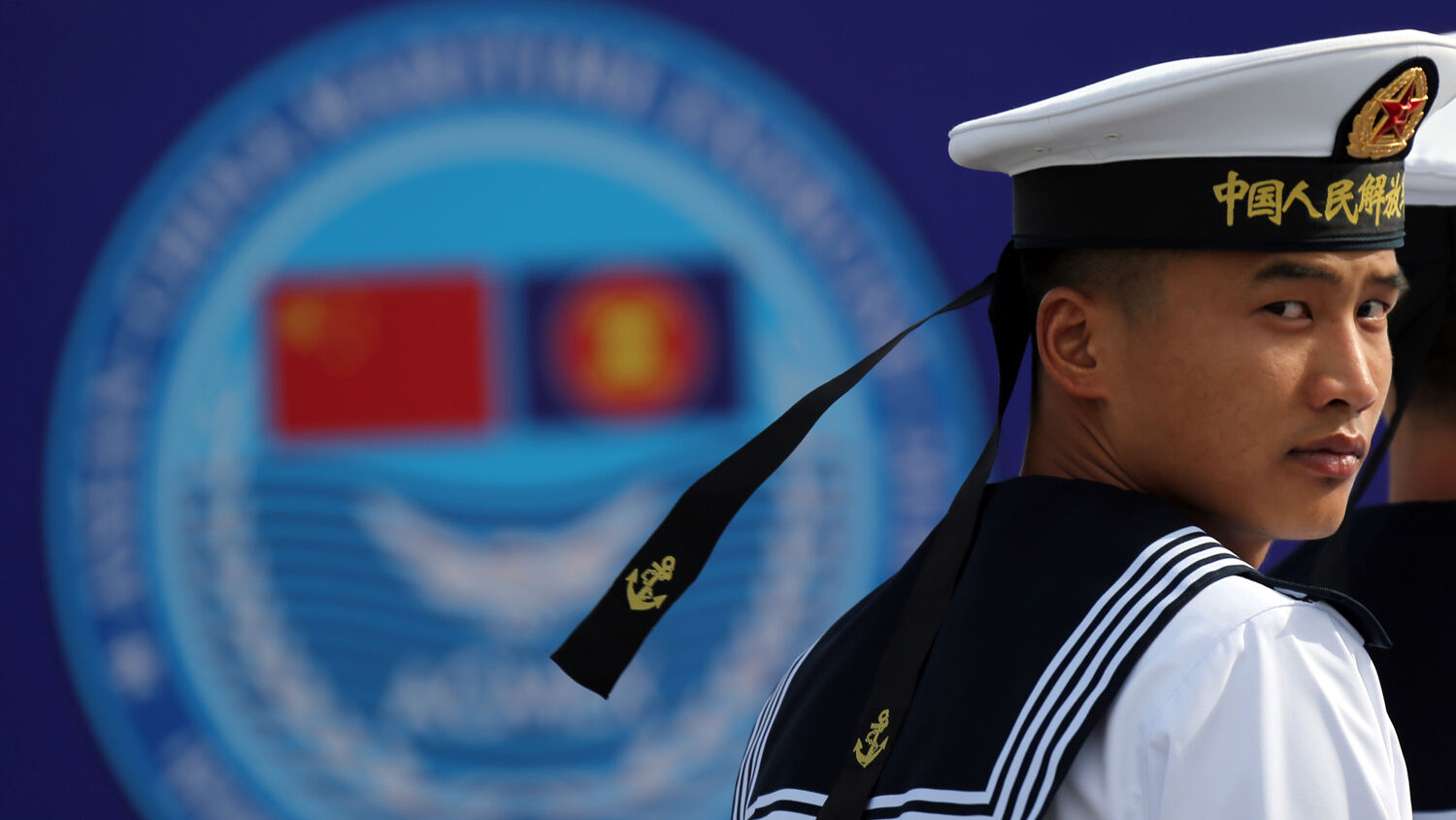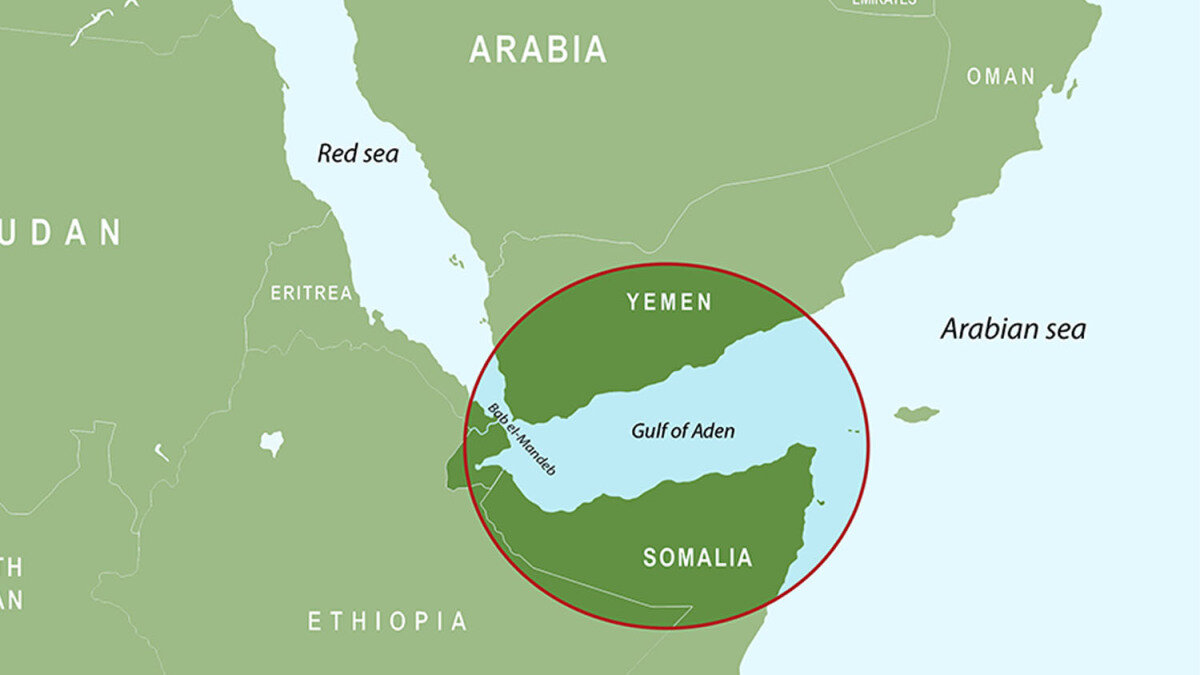
China Holds Joint Naval Exercises With EU
The European Union Naval Force and the People’s Liberation Army Navy announced on October 16 that the two had held joint exercises in the Gulf of Aden. The Diplomat wrote, “Set in the current geopolitical context, this new development merits attention for activity not only in the Gulf of Aden, but also in the Mediterranean Sea.” While this is not the first time that the EU and China have interacted in this way, it does signify a level of cooperation not previously seen.
The Gulf of Aden is a major shipping route and a vital waterway that links the Arabian Sea and the Red Sea through the Bab el-Mandeb. Via the Red Sea and through the Suez Canal, access to the Mediterranean Sea is facilitated. This makes the Gulf of Aden incredibly valuable. Anything that disrupts access through the gulf will significantly impact global trade.
Knowing the strategic significance of this gulf, both the European Union and China have deployed ships in the region since 2009 to protect against piracy. Other nations also patrol the region, frequently working together under the banner of the multinational Combined Task Force 151. China, however, has had very limited coordination with the EU through the task force.

“That said, recent activity may portend more regular interactions, if not cooperation, on the horizon,” the Diplomat wrote.
This recent China-EU exercise was held in the early hours of October 12. The two forces performed a joint medical and evacuation rescue drill, improving air-sea coordination and testing the medical rescue ability of China’s base in Djibouti.
The drill, which simulated rescuing six injured sailors from a burning ship cabin, lasted four hours and “practiced seven procedures such as the dispatching of emergency signal and information transmission, the establishment and dispatch of a joint medical rescue team, on-site joint medical treatment, and helicopter emergency medical evacuation and so forth,” China’s Ministry of National Defense reported October 15. Most notably, it “promoted exchanges and cooperation between the Chinese base and EU military forces in the region, and improved the capability of regional joint humanitarian operation.”
Rear Adm. Alfonso Perez De Nanclares, commander of the EU Naval Force, said, “This excellent interaction leaves me and the operation commander in no doubt that with these results we will be able to prepare further exercises which will consolidate the excellent relationship that has been built up with our Chinese counterparts.”
While this exercise may seem like a small event, it is a rarity for China and signifies something far greater. What has just occurred is part of a trend of China’s rise on the global scene.
China’s military base in Djibouti, built in 2017, is its first overseas military post. When the base first opened, Chinese officials took pains to refer to it as “an outpost or logistics facility,” rather than a military base, to downplay its significance as the first of China’s growing global military deployments. The proximity of this Djibouti base to a U.S. naval base has raised concern that the Chinese may be using their “logistics facility” to spy on American forces.
This most recent exercise constitutes the first time that EU military staff have been invited to the Chinese base. On August 8, prior to the joint exercise, the EU Naval Force operational commander visited the Djibouti base, and during the exercise, an Italian helicopter used it. Both of these events were either the first of their kind or one of an extremely rare and unknown occurrence of European military personnel entering the Chinese base.
Another key point to note is the proximity of these exercises and the Chinese Navy units to the Mediterranean Sea. Chinese presence in the Mediterranean is becoming more and more common as China’s global ambitions spread.
Chinese presence in the Mediterranean Sea greatly increased during 2015 with Russian and Chinese military drills occurring in this region. Chinese drills continued in 2017.
Also important to note is China’s Belt and Road Initiative. Trumpet staff wrote this regarding the project in Russia and China in Prophecy:
In September 2013, newly appointed Chinese President Xi Jinping unveiled his plan called “One Belt, One Road”—a land and sea version of the Silk Road trading route that would run through Asia, Europe and Africa. The initiative would cover an area that holds 55 percent of the world’s gross national product, 70 percent of the global population and 75 percent of known energy reserves. DefenseNews wrote, “China’s ‘one belt and one road’ initiative could usher in a new era that sees China as the undisputed geopolitical powerhouse in the region” (April 12, 2015). The idea is mainly economic, but as vice director of Shanghai Jiao Tong University’s Center for National Strategy Studies Zhuang Jianzhoug said, it “has political and strategic components and implications.” China is extending its influence and reach to create what Quartz called “the most extensive global commercial-military empire in history” (June 9, 2015). Beijing is making a “resource grab” wherever it can, creating economic alliances to fund its global ambitions of becoming a superpower. …
Beijing is also extending itself diplomatically, economically and even militarily into anywhere and everywhere in the world with resources for sale.
Mediterranean ports are vital to the Belt and Road Initiative. Earlier this year, it was estimated that Chinese enterprises control 10 percent of European port capacity in the Mediterranean. The result is increased presence of Chinese ships in the region.
The Diplomat concluded its article by highlighting the significance of these rising trends:
[T]he increasing Chinese presence in the Mediterranean makes it easier—if not inevitable—to envisage necessary eventual coordination in more crowded Mediterranean waters. As such, the significance of the combined medical evacuation exercise in the Gulf of Aden should be seen as more than a gesture of good will. It is attestation of Beijing’s growing comfort with sustaining a Far-Seas military presence and a way to test the waters for more action in and around Europe’s neighborhood.
Although the Diplomat provides insightful reporting, it misses key foresight that is only provided by Bible prophecy.
Isaiah 23 discusses a “mart of nations,” which includes both European and Asian nations, including Russia, China and Japan, combining to form a powerful economic bloc. Russia and China in Prophecy states:
The relationship we see developing between the “king of the north” and the “kings of the east” is exactly what Isaiah prophesied over 2,700 years ago! Think about the role that this alliance will likely play in the economic besiegement of America! …
The Bible contains many prophecies of that European power attacking America. This is where China and the other giants of Asia enter the picture. Considering that China now possesses most of the world’s strategic sea gates (at one time held by Britain and America), the German-led Holy Roman Empire will need to form a brief alliance with the Asian powers identified in Isaiah 23 (Russia, China, Japan—the “kings of the east”).
If Europe finds a way to take advantage of key resources and strategic holdings of China, Russia and Japan—even for a short period—then it would have more than enough power to besiege the Anglo-Saxon nations. The United States and Britain are going to be left out in the cold as two gigantic trade blocs, Europe and Asia, mesh together and begin calling the shots in world commerce. These nations of Israel are going to be literally besieged—economically frozen out of world trade!
The growing interaction between Europe and China points to the fulfillment of this prophecy. While this is primarily a financial relationship, the cooperation is increasing in other ways. This most recent medical exercise between the EU and Chinese navies shows that the two regions are becoming more comfortable with each other. A growing relationship, primarily economic, is prophesied.
The alliance between these two power blocs, the European “king of the north” and the Asian “kings of the east,” will continue to strengthen. They will work together to besiege America. But prophecy shows that this “friendship” will not last.
Both power blocs are vying for power to take over the world. In the end, their goals will conflict and their alliance will erupt into violence. Daniel 11 shows exactly what will become of this brief Euro-Asian alliance. In the end, the “king of the north” will be troubled by “tidings out of the east and out of the north,” causing him to “go forth with great fury to destroy, and utterly to make away many” (verse 40).
To understand more about the rise of China and its growing cooperation with Europe, please order your free copy of Russia and China in Prophecy.
